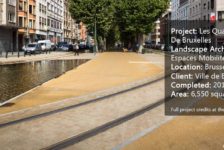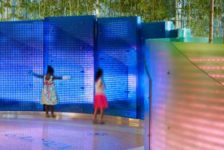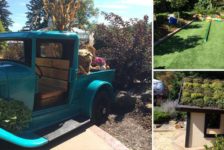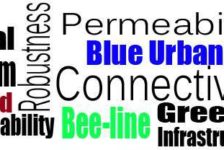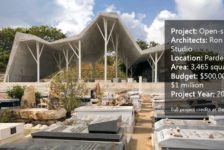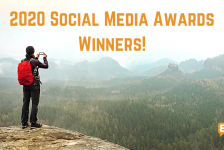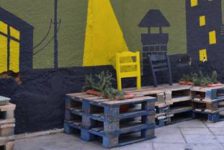Last post, I yammered on a little about mentorship; something that I think is tremendously valuable and rare. Useful information doesn’t always come from “above”, though, and I think we’ve got a lot to learn from all levels – so this time I wanted to find out what it was like to be an intern. Meet Rebecca Sunter (Hi, Rebecca!). Rebecca is entering her second year as a Master’s degree candidate at UC Berkeley this fall. This past summer, she had three internships. One of them was at PGA design, an established Landscape Architecture firm in Oakland, CA. Rebecca also worked for a relatively new interdisciplinary design firm, Hyphae Design Laboratory, also in Oakland, CA. Her third internship was for the San Francisco Planning Department. As before in these three posts, the answers given below have been vetted by the person interviewed.
Q: How on earth did you wind up with three internships?
A: I applied to several places because I had heard how difficult it could be to find work, especially as a first year student. When I got offers, I kept saying “yes” because of the unique value of each. Then, come June, I had to juggle all three in one work week. Each of the three were very different from the others, and at times it was emotionally draining, but I wouldn’t give up the experience for anything.
Q: What was the most helpful thing you learned?
A: It was really helpful when someone explained the why behind how redlines were done for a set of construction documents; like how highlighting redlines I’ve fixed helps the project manager keep track of what has been done. Also, being told the reason behind all the changes I was making helped me understand how construction documents are formatted; how the plan, sections and details all fit together. Using AutoCAD was pretty new for me, so it helped a lot to have someone who would take the time to explain.
Q: What was your greatest challenge in being an intern?
A: I found it hard to demonstrate ways in which I could be a more meaningful contributor with skills my employers didn’t realize I had while the skills I felt the companies were in more need of were some of my weak areas.
Q: How did your expectations match what you were actually doing?
A: Honestly, I didn’t know what to expect. And, as it turned out, I was asked to do very different things in each office. At PGA Design, I worked in AutoCAD a lot, doing redlining for a large-scale development project. At Hyphae Design Laboratory, I had to be much more a jack-of-all-trades, with a heavy emphasis on digital proficiency. Ultimately, at Hyphae, I ended up using experience from my previous Design/Build work to work on a planting plan for the Trailhead for the Tenderloin National Forest on Market Street in San Francisco. Whereas, at the San Francisco Planning Department, I was helping out with their Urban Forest Plan (UFP). I did some street tree typology and graphic development for the UFP, working mainly in pen + ink, Photoshop, and InDesign.
All in all, I was glad I’d had office jobs before so I understood office culture already and could focus on the software and substance of the work that was new to me – if I had been new to working in an office, it could have been really overwhelming bouncing between the varied office cultures and work flows.
Q: So now that you’re headed back to school, do you have any advice for other students?
A: I’d say take risks in school! If we don’t take them now, we’ll never get the chance. In the real world, it’s all about budgeted time + hard and fast deadlines. The faster you produce on the job, the greater profit. If you can make more money by doing a rendering faster than the way you’ve always done it, that’s what you’re gonna do. It’s in this precious limited time in school that we have the luxury to explore. Aside from your grades, failure means less in school; future work or paychecks aren’t on the line. Go out on a limb, have victories and failures in school where it is safer to learn from those experiences.
Also, I’d say don’t be afraid to say you don’t know on the job. I think this fake-it-till-you-make-it philosophy only serves to hold you back. I saw that the times I showed my bosses that I was learning and demonstrate that I was climbing the learning curve, our relationships became more interpersonal and they seemed more inclined to mentor me. Part of that was admitting when I didn’t know how to do something. I felt like that was a big part of building interpersonal relationships. That, and also interacting with the people in the office; finding that professional line between saying good morning and getting to know people while not wasting people’s time.
Q: Have your internships changed how you will approach school this year?
A: Absolutely! I know more about myself now, and I have a much clearer idea of what I am interested in doing with my career. I’m going back more focused. I also noticed that the “real world” is more team-oriented than in school where your projects are so often your own. Once in a while, UC Berkeley offers travel studios that function in collaboration. I just got back from a travel studio in Quito, Ecuador where we worked in teams to develop site-specific stormwater management BMPs. Travel is always fun and eye-opening, but working in a team, I learned a lot about myself as a collaborator. Before I graduate, I definitely hope to take another travel studio for the collaborative experience alone.
Q: What will you do differently next summer?
A: While I wouldn’t change a thing about the buffet-style approach I took to summer internships this first summer, I know I want to be more focused next summer. I want one internship where I can really get in deep with a particular project. I want to become part of a team, not just be the face that comes in ever so often. So, I’ll apply broadly, as I did this past spring, but will force myself to say “yes” only once.
Why look to an intern for my blog-post material? Well, here’s the thing. Working with Rebecca reminded me of what it is like to be new to this profession; learning as much as you can as fast as you can. By being her pleasant, eager to learn self, she exemplified what a good co-worker (or employer) is, and what they’re not. In our office, she (inadvertently) illustrated perfectly just how important personality is to success. Stay tuned for the next post, where I’ll post an interview with one of her summer internship employers.
Published in Blog


